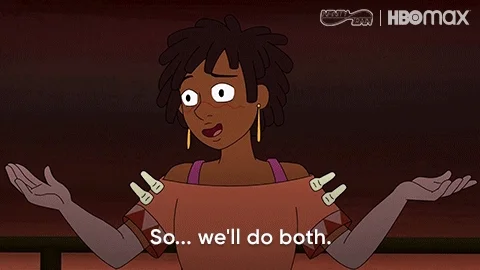Originally published at: Scientists: Don't call them shark "attacks" anymore. They are "encounters" that sometimes result in "bites." | Boing Boing
…
I assumed this was a parody at first, calling for labelling them “shark-involved bitings.”
shark encounters have been on the rise since craigslist closed the casual encounters section …
Are Australian scientists so starved for grant money that they’re accepting PR money from the shark lobby now? Because that’s the only reason I can think of for issuing such a ridiculously dumb statement like this.
At least we can all agree that Baby Shark is torture, right?
A change in language matters "because …
…sensationalism sells.
Good luck with trying to get the tabloids to stop using ‘shark attack’.
Your reaction is precisely why a change in language is needed. Do we call it a dog attack if a dog bites you? A snake attack? A mosquito attack? Sharks aren’t out to get us any more than any other part of the natural world.
(This message is paid for by Big Shark)
Just a typical Australian Wildlife Experience.
I miss the days when “You can’t change reality by changing how you talk about it.” was an obvious truism.
And please, they are Godzilla encounters that sometimes result in adjustments to real estate values.
Surely they’d use an app, like Plenty Of Fish?
Okay, but what do you see as the obvious truism here? That such encounters are “attacks”?
The truth is, the term “Shark Attack” kind of hurts our feelings. Is this healing? – Sharks Everywhere
If you think about it, it does make sense. We are the clumsy apes invading their space. It’s not like they’re climbing out of the oceans coming after us on dry land. cue the Land Shark gifs.
Soon:
“Okay everyone, in today’s Encounter Group therapy activity you are all going to role play “bait” and Sadie, our Great White participant is going to use all the sensory tools at her disposal to explore her environment and accept her essential sharkness. That’s it! Over the side and into the water! Let’s help Sadie have a breakthrough!”
The obvious truth here is that avoiding the use of the word “attack” doesn’t make anyone bitten by a shark less bitten, and it also doesn’t save a single shark from being killed. If you want to save shark populations, the solution lies in reducing the 100million caught in commercial fishing every year, rather than anything about shark attacks.

Thanks for explaining, but why not both?
I do hope you’ll read the whole article, instead of sticking to your reflexive hot take. The scientists and other who’ve studied and worked with sharks for years or decades provide plenty of reasons in it for reconsidering the common, inflammatory and yes, destructive word choice of “attack.” For example,
Dr Guida said the public could differentiate between dog bites and dog attacks, and avoiding the term “attacks” in reporting shark encounters “helps improve the public’s understanding of sharks and how they behave”.
This is a language problem in other realms too. Wolf populations have also been decimated when they shouldn’t have been, “cullings” fueled by inaccurate descriptions of them “attacking” and “slaughtering” livestock.
It’s true that changing the words we use is hard, but I agree with these shark experts that we should do so when adoption of new words not only reflects reality better, but also promotes better human behavior.
I will, however, continue to call out gingivitis when I see it.
Get that looked at, Bruce!

Sure do.
